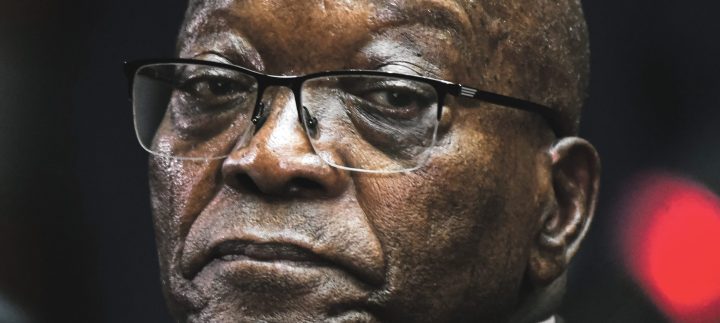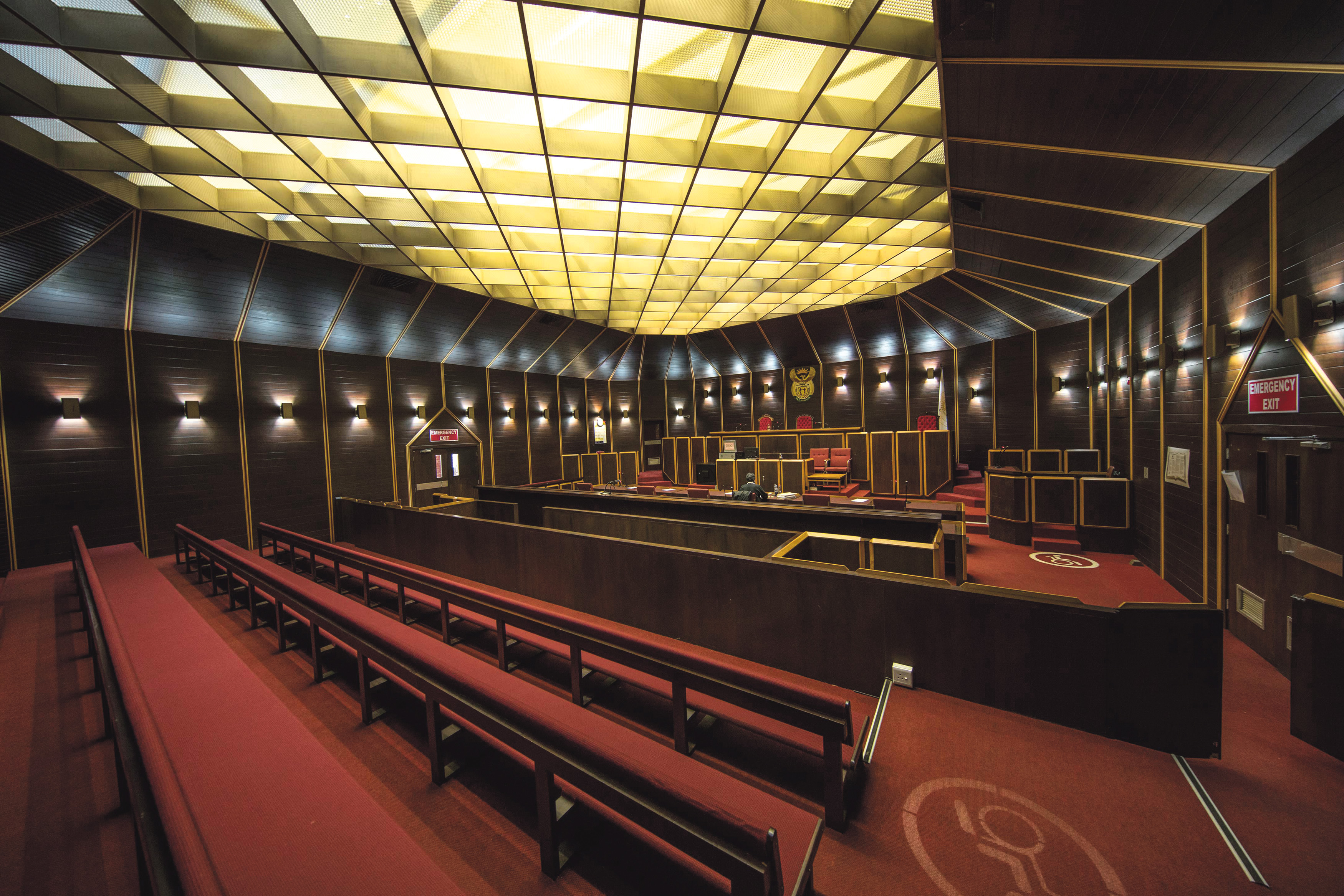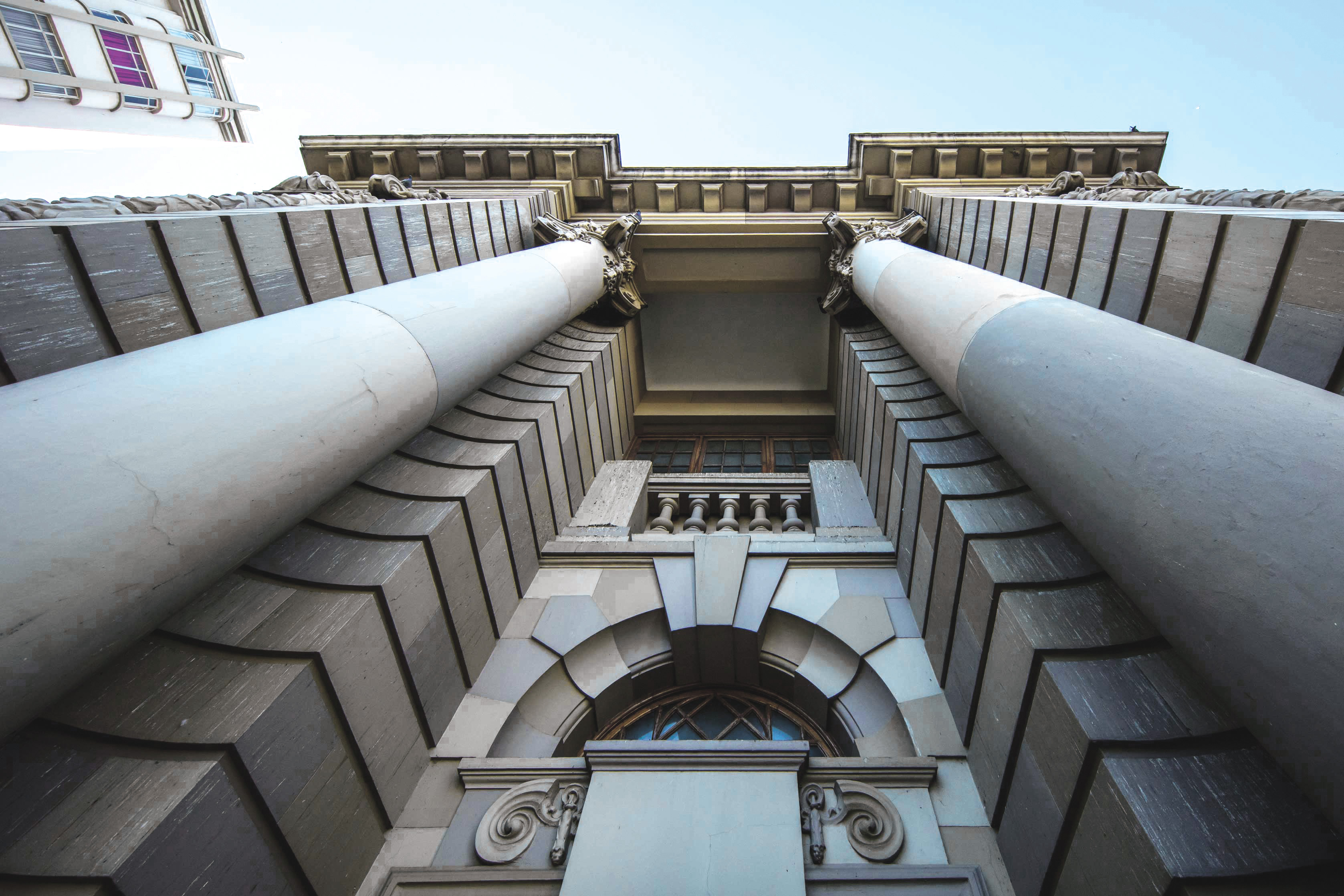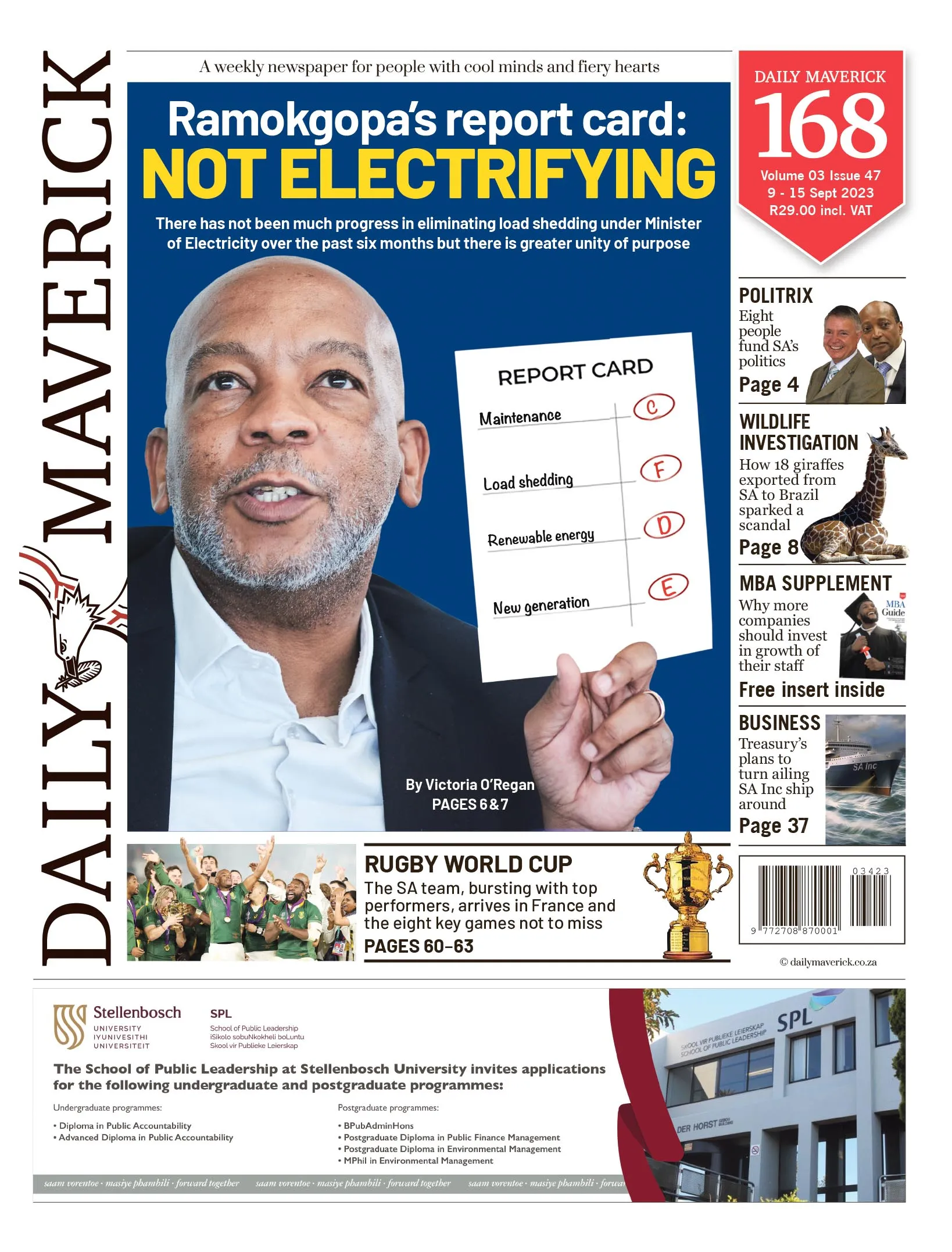COURTING DISASTERS
Dedicated SA judges, prosecutors and legal counsel should be celebrated in a time of litigious lunacy

Threats to our legal system include costly lawfare, abuse of process, misbehaving lawyers and failures by the Judicial Service Commission.
South Africans are bombarded daily with news of court proceedings involving high-profile individuals. Some of these disputes are the consequence of rampant crime in the country. Others emanate from widespread financial skulduggery or the abuse of political authority. We have become a very “litigious” society.
Why is this so? There are several reasons, none of which is attributable to the constitutional democratic system achieved formally in 1994. In assessing these reasons, we need constant reminding of the abysmal extent of the “democratic deficit” which we inherited from the past. This was the direct product of brutally exploitative capitalism and institutional racism, the central pillars of colonialism and apartheid.
The courts are the forum through which the constitutionality of both acts and omissions of those who exercise public power and perform public functions may be tested. Thus, the increased resort to the judicial process to assert rights and require the fulfilment of duties is entirely expected. This litigation should be welcomed by all who identify with our transformative constitutional vision.
Endless litany of criminal trials
However, this positive and proper use of the courts is, sadly, overwhelmed by the endless litany of criminal trials, which reflects the violent and careless existence that most of the population experiences daily. In this regard, the lower courts are the forum for providing the delivery of justice for most unlawful behaviour. The workload of magistrates and public prosecutors is relentlessly debilitating, underresourced and too frequently unappreciated.
Any rational observer would be justified in thinking that the administration of justice is unfit for purpose and unable to accommodate the extremely high demands placed on it.
So the image of the courts that most South Africans have is based on their encounters with prosecutors and magistrates, bolstered by news of sensational criminal and civil trials at high court level. What is clear from such coverage is the typically huge delay between the criminal act and the resultant trial: the dominant story at present is the trial of five men accused of the murder of footballer Senzo Meyiwa in 2014. Even allowing for the impact of the pandemic, the nine-year gap is unacceptable, both for the victim’s family and the accused.

The National Prosecuting Authority’s advocate Billy Downer with journalist Karyn Maughan, against whom Zuma tried to bring a private prosecution. (Photo: Darren Stewart / Gallo Images)
Similarly, the apparent vacuum in prosecutions for corruption, in particular following the extensive findings of the Zondo Commission, as well as the spectacular failure of the attempted prosecution for corruption of the Gupta brothers and others in the Free State High Court Nulane case recently, paint a dismal picture of police and prosecutorial paralysis and ineptitude. Neither of these explanations is comforting to those who seek justice.
Bleak picture
In the civil court arena, political parties and groups repeatedly litigate to achieve what they cannot through the usual channels in Parliament and provincial and local councils, often without resorting to ordinary political activity on the ground.
If one adds to this bleak picture the endless, costly and cynical exploitation of every possible avenue to avoid having to face the consequences of their decisions and actions by just three people, Judge President John Hlophe, Public Protector Busisiwe Mkhwebane (both in the parliamentary inquiry in which she was embroiled, and in her frequent resort to the courts to challenge aspects of that inquiry) and former president Jacob Zuma, any rational observer would be justified in thinking that the administration of justice is unfit for purpose and unable to accommodate the extremely high demands placed on it.
The body which is by law responsible for maintaining professional integrity and standards, the Legal Practice Council, has failed dismally to discharge its obligations under law.
Even more outrageous is the tactic employed by some of such litigants to plead their inability to defend themselves without payment by the State (the taxpayers) for their repeated recourse to lawyers’ services. Mkhwebane and Judge Hlophe are the most prominent such complainants, but they have now been joined by Judge Makhubele in Gauteng, who faces judicial misconduct allegations. Each of these well-paid persons has been appointed to high office at least based on their skills as a lawyer, which makes their claim tenuous in the extreme.
Read more in Daily Maverick: Makhubele tribunal an important test for the regulation of judges’ conduct
In the light of all these factors, it is near miraculous that the courts continue to function as effectively as they do. This is due chiefly to the many dedicated judicial officers, prosecutors, legal counsel, and administrative and security staff who conscientiously attend to their daily duties with integrity and commitment to the cause of the fair administration of justice. They should be valued and celebrated by the general public.

The proper use of the courts is, sadly, overwhelmed by the endless litany of criminal trials. (Photo: www.kznbar.co.za)
A fiercely independent and accountable legal profession is an essential element of an independent court system. In this spirit, it needs to be recorded that the legal profession faces two threats from within its ranks which, if not effectively addressed, will undermine its legitimacy. First, the abject failure by the Judicial Service Commission (JSC) to deal expeditiously and fairly with instances of judicial indiscipline and misconduct is lamentable. The practices of the JSC in appointing judges appeared over the past few years to have been derailed, but in the past year it has regained some of its legitimacy, not least due to firm leadership by Chief Justice Raymond Zondo and the constitutionally compliant conduct of newly appointed members. Yet the disciplinary aspect of the JSC’s mandate, particularly the several disputes surrounding Judge President Hlophe of the Western Cape that drag on endlessly, is deplorable.
Read more in Daily Maverick: The Motata ruling – Structural and human problems behind failure of JSC to protect integrity of judicial system
The second threat emanates from the flagrant display of abuse of process, including outright disrespect both to the Bench and opposing parties, by high-profile lawyers in prominent trials (as well, of course, as the section 194 Parliamentary inquiry into the Public Protector). Presiding judges have, on occasion, allowed gross abuse of decorum and civility to escape uncensured. They have also been too willing to grant permission to serial litigants to appeal just about every ruling made, which causes endless delays and a decline in confidence in the judicial process.
In the face of such behaviour, the body which is by law responsible for maintaining professional integrity and standards, the Legal Practice Council, has failed dismally to discharge its obligations under law.
Glimmers of hope
On the other hand, there have been recent glimmers of light in the gloom. The Full Bench judgment in the KwaZulu-Natal High Court that set aside former president Zuma’s private prosecution against the NPA’s Billy Downer and the journalist Karyn Maughan is an exemplary act of judicial authority. The judgment is based on impeccable legal reasoning and the court went further to make it clear that it viewed the actions of Zuma and his lawyers as an abuse of legal process. Just last week the same court reinforced its first judgment by dismissing a further attempt by Zuma to evade its effects.
If one adds to this the scathing criticism in early June of counsel and attorneys (for the University of South Africa and the Department of Justice) in the Labour Court by Acting Judge Sethene, it seems that at least some judges are sending out a clear signal that they have had enough.

The Pietermaritzburg High Court. (Photo: www.kznbar.co.za)
In his words: “Courts are not theatres of amusement to elevate hedonism. [They] must be respected by their officers and those privileged to have the right of audience.” As a graphic sign of his disapproval, he ordered that the lawyers should not be paid.
This is the type of robust and justified assertion of judicial authority that is not only consistent with constitutional requirements but also long overdue in drawing a line in the sand in the proper enforcement of the doctrine of the separation of powers.
If replicated and endorsed by other superior courts and the Constitutional Court, these landmark judgments give hope for an end to the relentless undermining of constitutional rules and values employed by a few high-profile litigants and their lawyers, aided and abetted by party politicians who are hostile to the rule of law as our constitutional bedrock.
Given the depressing incompetence and abuse of power characterising governance generally, the judiciary is a precious commodity, which must be treasured by all who subscribe to our core constitutional values of dignity, equality and freedom. DM
Hugh Corder is Professor Emeritus of Public law at the University of Cape Town.
This story first appeared in our weekly Daily Maverick 168 newspaper, which is available countrywide for R29.




















 Become an Insider
Become an Insider
Two things:
First, this panegyric to SA’s judiciary seems a bit hollow and driven by the view that the judiciary is the only branch of government that is vaguely functional. It misses that the judiciary is also susceptible to political pressure, as evidenced by several incongruous rulings, and that there appears to be a slow decline in judicial responsiveness where rulings are increasingly delayed, sometimes to the point where the relief sought is no longer relevant due to other developments.
Second, the rules around state funding for public service litigation, whether litigant or defendant, need revision. The incessant use of lawfare, Stalingrad tactics, SLAPPing, etc. by public service employees needs to be addressed by such a revision. While this is not the direct responsibility of judicial officers, their tolerance for such antics has often been shameful.
Whoever the responsible agencies are for the above, they should hang their heads in shame. That said, the judiciary is still, overall, a force for good in SA.
When is a judge, magistrate or judicial council going to rule against the tactics that Dali Mpofu displays, unethical, demeaning, threatening, lying, omissions, misrepresentations, intimidation, bad preparation, bad time management, taking the other party’s time, politicking, etc. Denise Smit
The perception and often it means reality is that the law only works and applies to the common man. The rich and connected
literally get away with murder and wholesale theft and corruption, and get to enjoy their proceeds of their crime with no consequences. The most vile and wicked are the three quoted above ie zuma, hlope and mkhwebabe, and add the odious and revolting lawyers such as Mpofu & co. The legal system has to be amended where 1 . Like the ordinary citizen, legal fees must be paid by the individual and not the taxpayer 2. If you are suspended, you do not receive your salary. In SA, you have thieves sitting at home for years earning their full pay. 3. When there is clear cut Stalingrad tactics being used to deny, delay, obfuscate etc, the next step is prison. Shift the onus so that they must prove their innocence to get out of prison. Attach all their assets as well. 4. When a case is lost and millions spent like mkhwebane, her lawyers/advocates should also be made to pay back their fees if taxpayer money was used. It is wrong that immoral scum like Mpofu just simply moves onto the next case where he specialises in ie defending RET scumbags and denying justice ad infinitum at taxpayers expense. This pathetic and sick circus has to stop. It is pure mockery and justice denied.
Dear Hugh Corder
I am not entirely surprised that you did not even once mention President Ramaphosa’s Marikana Murders, and the Phala Phala scandal, in addition to the subsequent cover-ups. Mind offering any explanation?